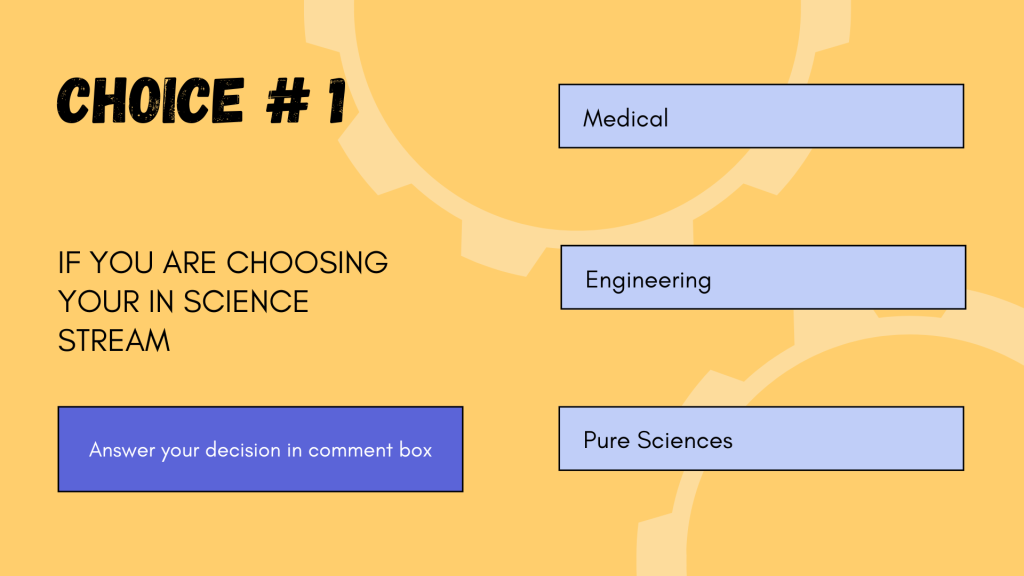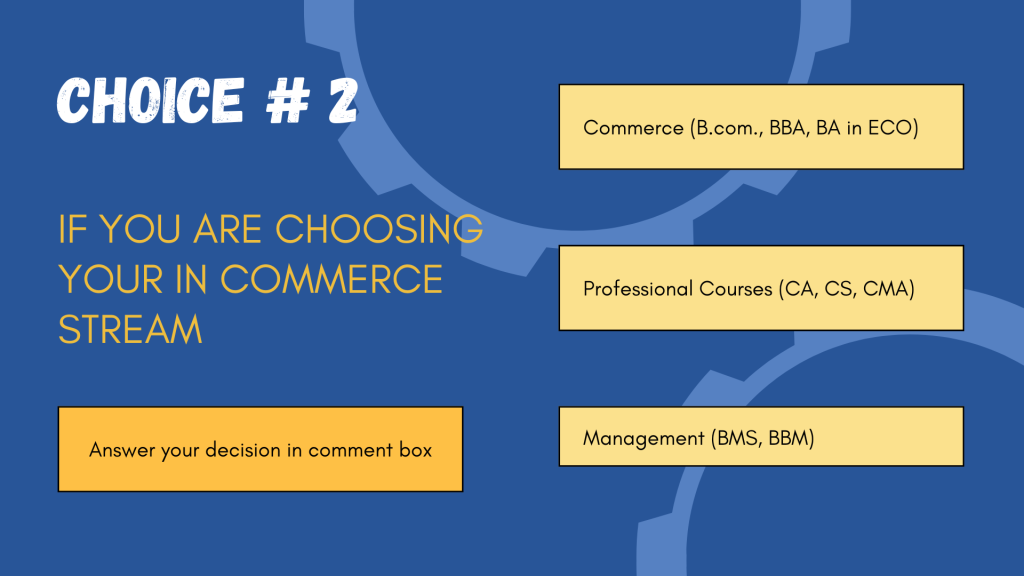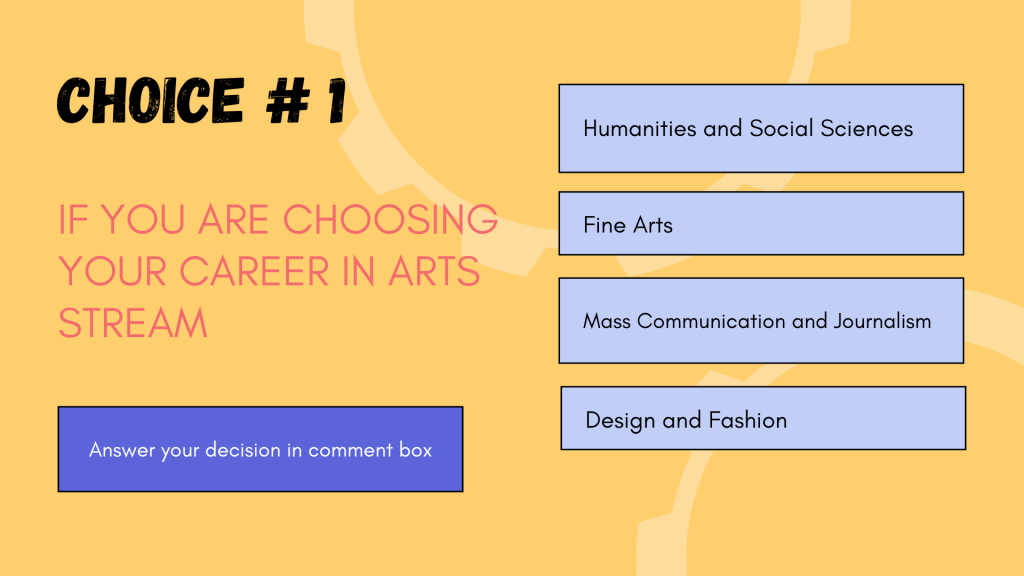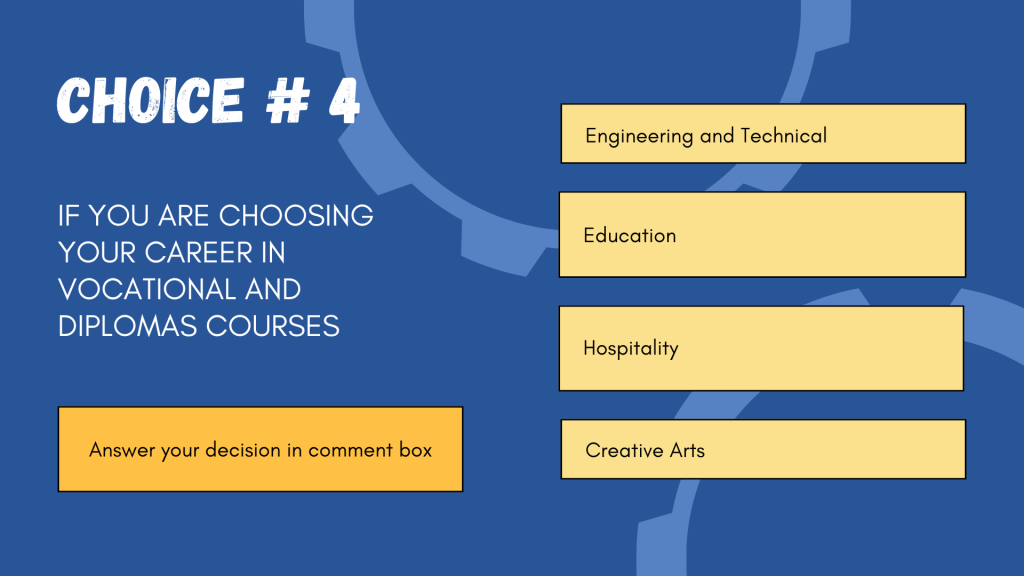
Choosing the right course after completing 12th grade is a pivotal decision that can significantly impact your career and future. This stage marks a pivotal point in your educational journey, where you transition from foundational education to specialized higher education or vocational training. The options available to you are diverse, spanning multiple disciplines and career paths, each with its unique opportunities and challenges.
The decision-making process can be overwhelming due to the vast array of courses and fields of study. It is essential to consider various factors such as your interests, strengths, career goals, and the future scope of the chosen field. Additionally, understanding the nature of different courses, their eligibility criteria, and the potential career prospects can help you make an informed choice.
This guide provides a comprehensive overview of the various courses and career options available after 12th grade, categorized by different streams: Science, Commerce, and Arts. It also covers vocational courses, diplomas, and other professional pathways, offering a holistic view of the opportunities that await you. Whether you aspire to be a doctor, engineer, accountant, designer, or entrepreneur, this guide aims to help you navigate the multitude of choices and set you on the path to a successful and fulfilling career.
By exploring the details of each stream and the corresponding courses, you can gain a better understanding of what each field entails and align your choices with your personal aspirations and academic strengths. Additionally, insights into competitive exams and the prospects of studying abroad are provided to broaden your horizons and present a global perspective on education and career opportunities.
Courses and Career Paths After 12th Class
1. Science Stream

- Medical
- MBBS (Bachelor of Medicine and Bachelor of Surgery)
- BDS (Bachelor of Dental Surgery)
- BAMS (Bachelor of Ayurvedic Medicine and Surgery)
- BHMS (Bachelor of Homeopathic Medicine and Surgery)
- B.Sc. Nursing
- Pharmacy (B.Pharm)
- Engineering
- B.Tech/B.E. (Bachelor of Technology/Engineering)
- B.Arch (Bachelor of Architecture)
- B.Sc. in Computer Science/IT
- Pure Sciences
- B.Sc. (Bachelor of Science) in Physics, Chemistry, Mathematics, Biology, etc.
- B.Stat (Bachelor of Statistics)
- BCA (Bachelor of Computer Applications)
2. Commerce Stream

- Commerce
- B.Com (Bachelor of Commerce)
- BBA (Bachelor of Business Administration)
- Economics (B.A. in Economics)
- Professional Courses
- CA (Chartered Accountancy)
- CS (Company Secretary)
- CMA (Cost and Management Accountancy)
- Management
- BMS (Bachelor of Management Studies)
- BBM (Bachelor of Business Management)
3. Arts Stream

- Humanities and Social Sciences
- B.A. (Bachelor of Arts) in English, History, Political Science, Sociology, etc.
- Fine Arts
- BFA (Bachelor of Fine Arts)
- Mass Communication and Journalism
- B.J.M.C. (Bachelor of Journalism and Mass Communication)
- Design and Fashion
- Fashion Designing
- Interior Designing
4. Vocational Courses and Diplomas

- Engineering and Technical
- Diploma in Engineering
- Education
- Diploma in Education
- Hospitality
- Diploma in Hotel Management
- Creative Arts
- Diploma in Digital Marketing
- Animation and Multimedia Courses
5. Other Career Options
- Defense
- NDA (National Defence Academy)
- Banking
- Banking Sector through competitive exams
- Entrepreneurship
- Starting own business
6. Higher Studies and Competitive Exams
- India
- JEE (Joint Entrance Examination)
- NEET (National Eligibility cum Entrance Test)
- CLAT (Common Law Admission Test)
- NIFT (National Institute of Fashion Technology)
- Abroad
- SAT (Scholastic Assessment Test)
- TOEFL (Test of English as a Foreign Language)
- IELTS (International English Language Testing System)
Conclusion:
Choosing the right path after completing 12th grade is a significant decision that can shape your future career and personal growth. Here are some key considerations and steps to help guide your decision-making process:
1. Assess Your Interests and Strengths
Reflect on your passions, interests, and strengths. Consider what subjects you enjoyed in school and where you excelled. This self-awareness will help you identify fields that you are naturally inclined towards and are likely to succeed in.
2. Research Career Options
Explore various career options available for your chosen stream (Science, Commerce, or Arts). Look into the scope, job prospects, work environment, and future growth in each field. Understanding the long-term potential and opportunities in different careers can help you make an informed decision.
3. Seek Guidance
Talk to career counselors, teachers, professionals, and family members. Their insights and experiences can provide valuable perspectives and help you weigh the pros and cons of different courses and career paths.
4. Consider Financial and Practical Aspects
Evaluate the financial implications of your chosen course. Consider tuition fees, accommodation, and other expenses. Look into scholarships, financial aid, and part-time job opportunities to support your education. Also, think about the location and whether you are willing to relocate for your studies.
5. Explore Internships and Short-term Courses
Gain practical experience and exposure through internships and short-term courses related to your field of interest. This hands-on experience can provide clarity and help you make a more informed decision about your future career.
6. Prepare for Entrance Exams
If your chosen career path requires entrance exams (like JEE, NEET, CLAT, etc.), start preparing early. Join coaching classes if needed, and create a study plan to ensure you are well-prepared to succeed in these competitive exams.
7. Stay Open to Alternatives
Be open to exploring alternative career paths. Sometimes, unconventional courses and careers can lead to fulfilling and successful futures. Keep an open mind and be willing to adapt as you discover more about your interests and strengths.
8. Plan for Higher Studies and Skill Development
Consider the possibility of higher studies, such as postgraduate courses, professional certifications, or skill development programs. Continuous learning and upgrading your skills can enhance your employability and open up new career opportunities.
Final Thoughts
The journey after 12th grade is unique for everyone. It is essential to make a well-informed decision that aligns with your interests, strengths, and career aspirations. Take your time to explore various options, seek guidance, and plan carefully. Remember, the choices you make today will lay the foundation for your future success and fulfillment. Stay motivated, be proactive, and embrace the opportunities that come your way. Your dedication and perseverance will ultimately lead you to a rewarding and prosperous career.
